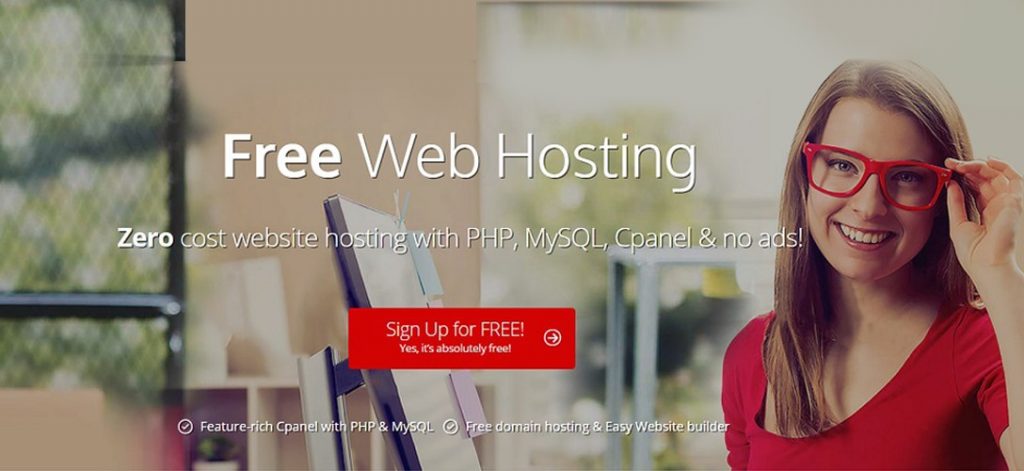Joomla is one of the most popular platforms for building websites. Due to its popularity, it receives an increasing number of contributions from various contributors. This allows it to grow and become as popular as WordPress. Few months we have published an infographic about 13 reasons why you should choose Joomla. Today, we are going to discuss the advantages of using the Joomla content management system (CMS).
Advantages of Using Joomla CMS
Key Advantages of Using Joomla
Free to Use
Joomla is developed in open source so that everyone can download it for free. It uses PHP as the primary language and supports MySQL alongside. PHP and MySQL in Joomla make it possible for many volunteers to continue their contributions in optimizing the code and creating new extensions. The commercial CMS license could easily cost you tens of thousands of dollars if you set up many websites every year. You’ll need to hire people to develop the CMS and its extensions. It also costs money to hire people to configure it. Additionally, you need to wait for months or years for your CMS to be ready. However, if you download Joomla now, you can instantly have a website and easily configure it all at free cost.
Suitable for E-Commerce

Joomla is well suited for setting up an online store. Joomla has number of shopping cart extensions which lets you create e-commerce website easily and smoothly. You can find a list of the best shopping cart extension on our another article. Shopping carts need to be secure and need to avoid the spams. On the login form, you can add CAPTCHA and secure your store from spammers. Here is the official documentation to add ReCAPTCHA on your Joomla website. The backup extension allows you to backup your e-commerce store. There are many free and pro eCommerce Joomla templates with appealing designs that can be easily customized. It has everything you need to keep your website steady, including tracking your website analytics, social marketing, affiliate marketing, and SEO optimization.
Joomla also has an email marketing extension that can automate your email campaign. However, using the Joomla email marketing extension may slow down your website. Therefore, you might want to consider using email automation software to manage your campaign. It will be more effective in managing unlimited subscribers and mailing lists. Compared to WordPress, lesser extensions are needed for an e-commerce website.
Support PHP Scripting
Joomla supports PHP, so you don’t have to write lengthy code when you want to add features to your website. It is easier to make an edit to the code when you want some changes to the features. Because of PHP, you can connect to the database more efficiently. PHP has a memory of its own, which reduces the server load and increases the processing speed. You will be able to integrate web applications that require PHP in your Joomla site.
Have an Active Forum Community
Joomla has its active forum community. There are many professional Joomla developers and other users who are active members of the forum. The forum has different sections for different types of problems. There is a section where you can ask a support question that is useful when you face a problem using Joomla. By discussing your issue on the forum, you can quickly get it fixed so that your Joomla site can run smoothly. Joomla is also supported by many third-party companies that are using the CMS to run their websites.
Ability to Use Multiple Joomla Templates
Joomla allows you to use more than one template on a website. On the other hand, WordPress only allows you to use one theme on a website. Because of this, you can have pages with different designs from different Joomla templates on your Joomla site. With other templates, you can also use different modules on each page.
Safe, Fast, and Easy to Use for Editing
Joomla is safer to use for editing a page on your website. When you are editing any of the articles or modules, it will lock that so that no one else can edit the same content to avoid conflicts. Joomla comes with a powerful content editor like TinyMCE that makes it easy for you to edit content. The editor comes with all the similar editing tools you can find in Microsoft Word. You don’t have to install any extensions to have these editing tools. They are by default in your Joomla editor.
It is also easy to search for the content you want to edit with the article manager tool. You can narrow your results by various criteria such as status, tag, category, and language. Anyone with PHP experience will be able to make changes to the core of Joomla. Joomla’s core code is written clearly, so it is easy to edit it. PHP is the primary programming language used in creating Joomla. It is necessary to make changes to the code of Joomla to optimize your site. However, if you make changes to the core code, you will no longer be able to upgrade to Joomla.
Easy to Use Menu Creation Tool
Joomla offers a straightforward menu creation tool that benefits people without any experience. The tool allows you to create a hierarchical menu that points to different locations. You can choose the style of the menu based on any of the templates you have installed. The links of the menu can be pointed to different locations internally and externally.
Built-in Caching
Joomla supports built-in caching to increase the website loading speed. Built-in caching prevents the server from getting overloaded when your Joomla site is getting many queries. However, caching can sometimes conflict with other extensions. If you face any problem using the extension, you can temporarily disable caching and see how it goes. Caching is a must-use feature, so make sure you enable it to improve its performance.
Here is how you can enable Cache on your Joomla site:
Built-in SEO Functionality
Joomla has a built-in SEO functionality that enables you to optimize the website for the search engine. You will perform the basic SEO, such as add Meta descriptions and keyword yourself without hiring a third-party SEO company. In the settings, you can customize it to use an SEO-friendly URL and include the site name in the page title. SEO-friendly URLs will use the page title in the URL instead of a string of random words in the URL.
Here is how you can enable SEF URL in Joomla with one click:
Support Multiple Languages
Joomla offers multilingual support, enabling you to build the leading site in English and create the same website in other languages like French and Spanish. There are a few extensions that can work with the older versions of Joomla to support multiple languages. Supporting multiple languages on your website is essential if you have many visitors from foreign countries. It will make it easier for them to understand your website when you provide a version that is translated into their native language.






![Hostinger Web Hosting - Starting From $2.99 [Review] Hostinger Web Hosting](https://joomdev.com/wp-content/uploads/2021/11/b2ap3_large_1088x500-1024x471.jpg)
